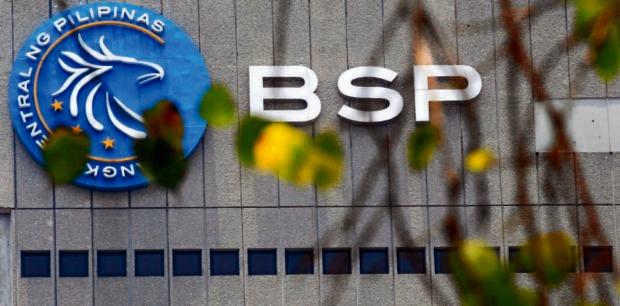BSP likely to keep key rates at record lows up to ’22
The Bangko Sentral ng Pilipinas (BSP) is expected to keep its key interest rates at record-low levels through 2022 especially as the more contagious Delta variant of the coronavirus looms as a key risk to economic recovery.
This is according to New York-based think tank Global Source, which sees the BSP continuing to favor economic growth in the monetary policy equation, notwithstanding escalating jitters on a possible tapering of stimulus by the US Federal Reserve (Fed). This means keeping its interest rates steady at current levels.
“This reading is also shaped by our view of weakly recovering domestic demand that is even now threatened by the rapid spread of the delta variant in neighboring economies. Also, the pace of local vaccination so far as well as uncertainties regarding the efficacy of the deployed vaccines against the mutating virus leave us wondering whether any upward price pressures can be sustained by the slack in goods and labor markets,” Global Source said in a July 14 report authored by Filipino economist Romeo Bernardo.
Recently, the Philippines reported its first death from the dreaded Delta variant, soon after detecting the first local transmission. This variant is a cause for concern as it infects human cells more easily.
Independence from the Fed
Meanwhile, BSP Governor Benjamin Diokno himself had indicated that a prospective Fed interest rate hike in 2023 would be “less of a threat to the Philippine economy compared to other developing and emerging economies,” citing the economy’s “sound fundamentals.” He had also gave an assurance that the BSP would withdraw monetary support only when signs of solid economic recovery had become clearer alongside a manageable inflation environment and a sustained downtrend in COVID-19 transmission.
Article continues after this advertisementDiokno’s boldness in asserting the BSP’s independence from the Fed follows local disinflation in recent months, Bernardo noted.
Article continues after this advertisementThe liberalization of pork importation has resulted in the softening of meat prices, helping to offset the sudden spike in global crude oil prices, the economist pointed out.
Despite openness to capital flows, Bernardo said any reversal in these flows at this time that would lead to a weaker peso would be a boon for economic growth, especially for sectors that generate foreign exchange like exporters, business process outsourcing (BPO), and families of Filipinos overseas.
But while Global Source expects the BSP to maintain key interest rates through 2022, it cited several factors that could induce the local monetary institution to hike policy rates, one of which would be in the event of a shaper-than-expected economic rebound.
“This may happen if the country avoids a resurgence in infections with its latest plan to focus vaccination in Metro Manila and other key urban areas that serve as entry points for new variants. In the event, the boost to consumer confidence coupled with potential aggressive election spending could result in a US-style run-up in inflation as pent-up demand is unleashed,” the economist said.
At the same time, Bernardo sees rising inflation remaining as a threat in the horizon, citing continuing chatter about a multiplicity of global supply side risks related to post-pandemic global recovery that may affect consumer prices over time.
Although monetary policy is not designed to respond to supply-side shocks, rising inflation momentum and the need to anchor inflation expectations may force a pre-emptive BSP policy rate hike, he said.
Turmoil in the financial markets is seen as another wild card.
“Risk-off global financial conditions, possibly triggered by the feared early US monetary tightening (whether by tapering its treasury purchases or raising interest rate) and/or sentiment changes about the large build-up in emerging market debts, alongside less favorable opinions from credit raters and local political risks, may cause unmanageable capital outflows and lead monetary authorities to choose to tame an overshooting peso in lieu of keeping policy independence,” Bernardo said.
Even without a policy rate hike, local market interest rates are seen to take their cue from global markets.
